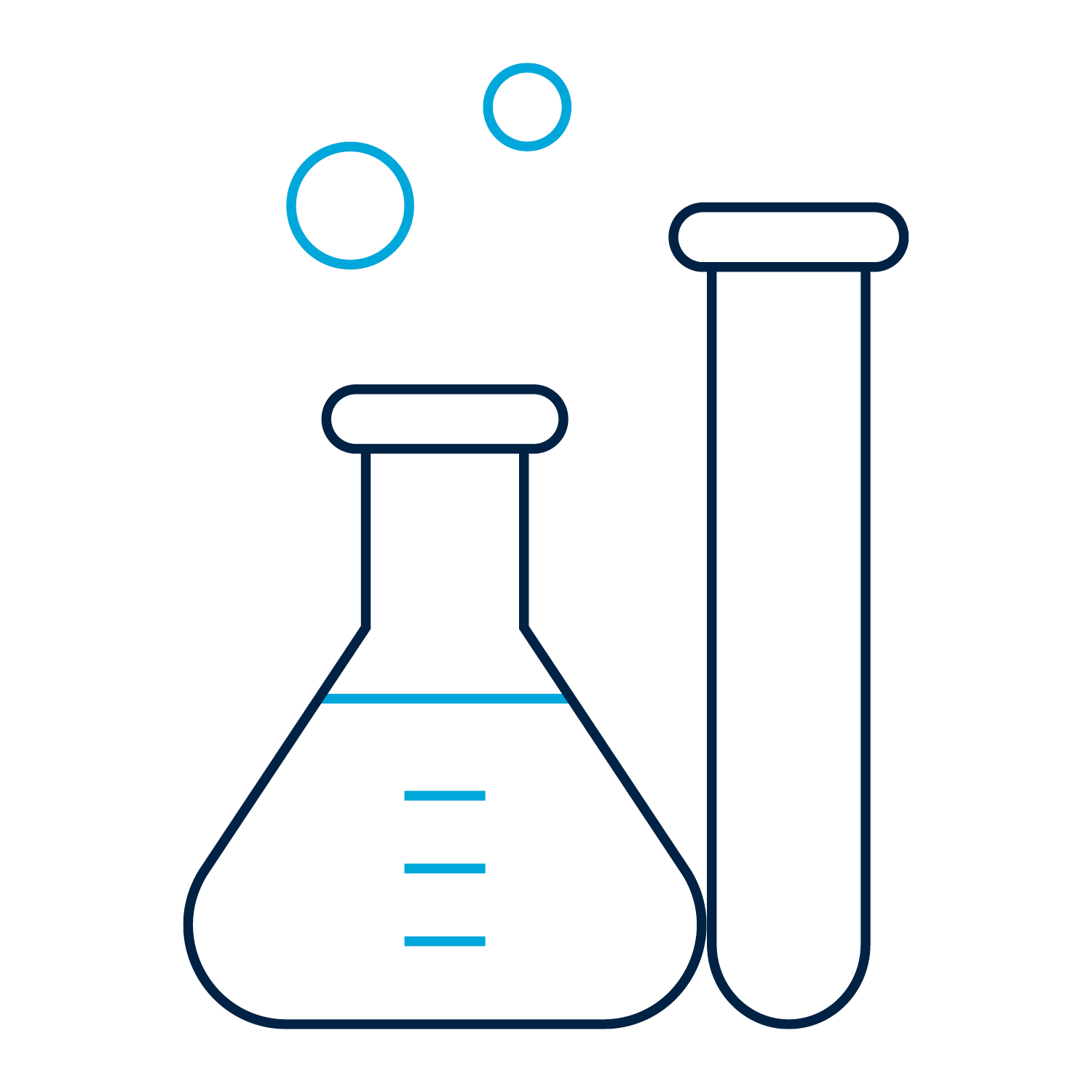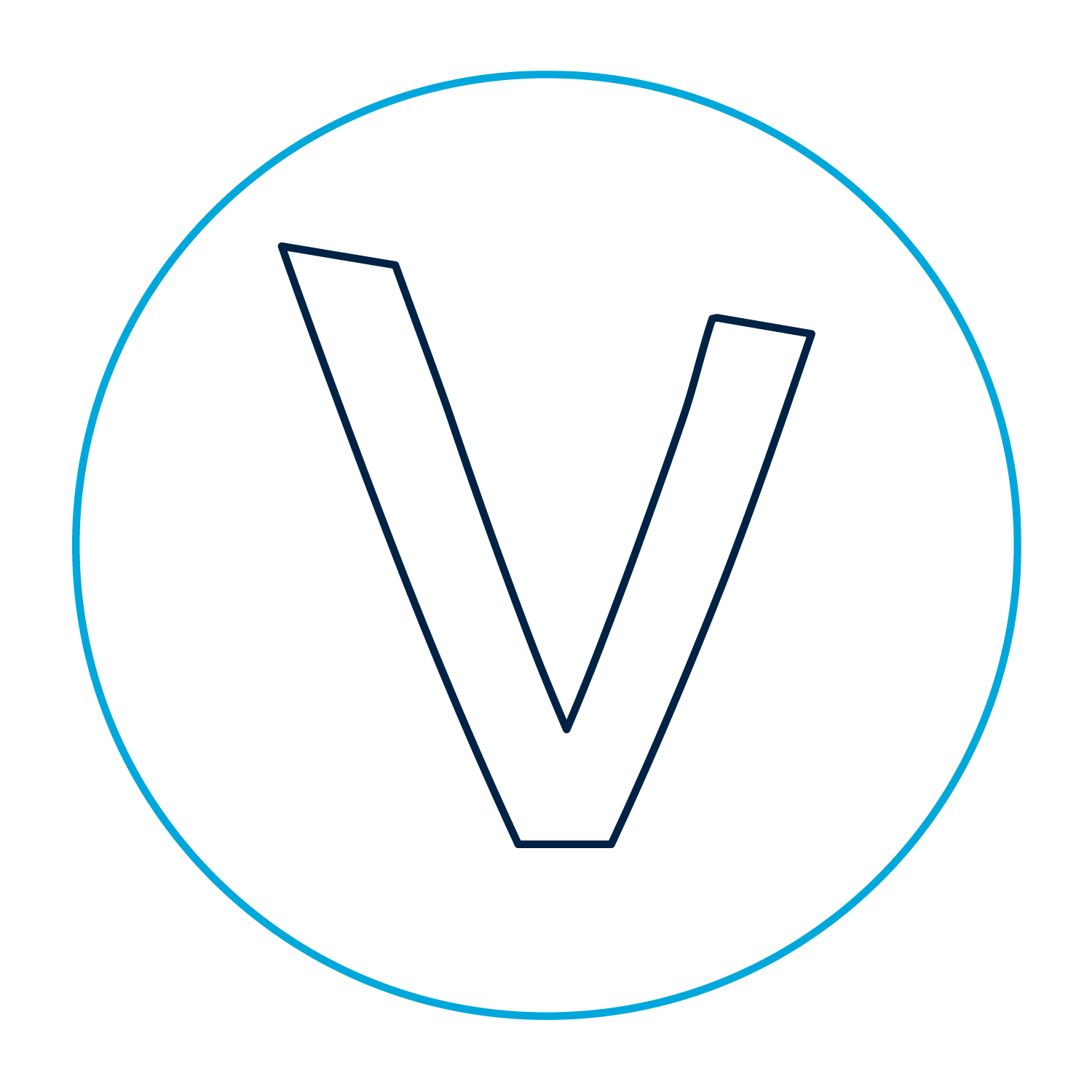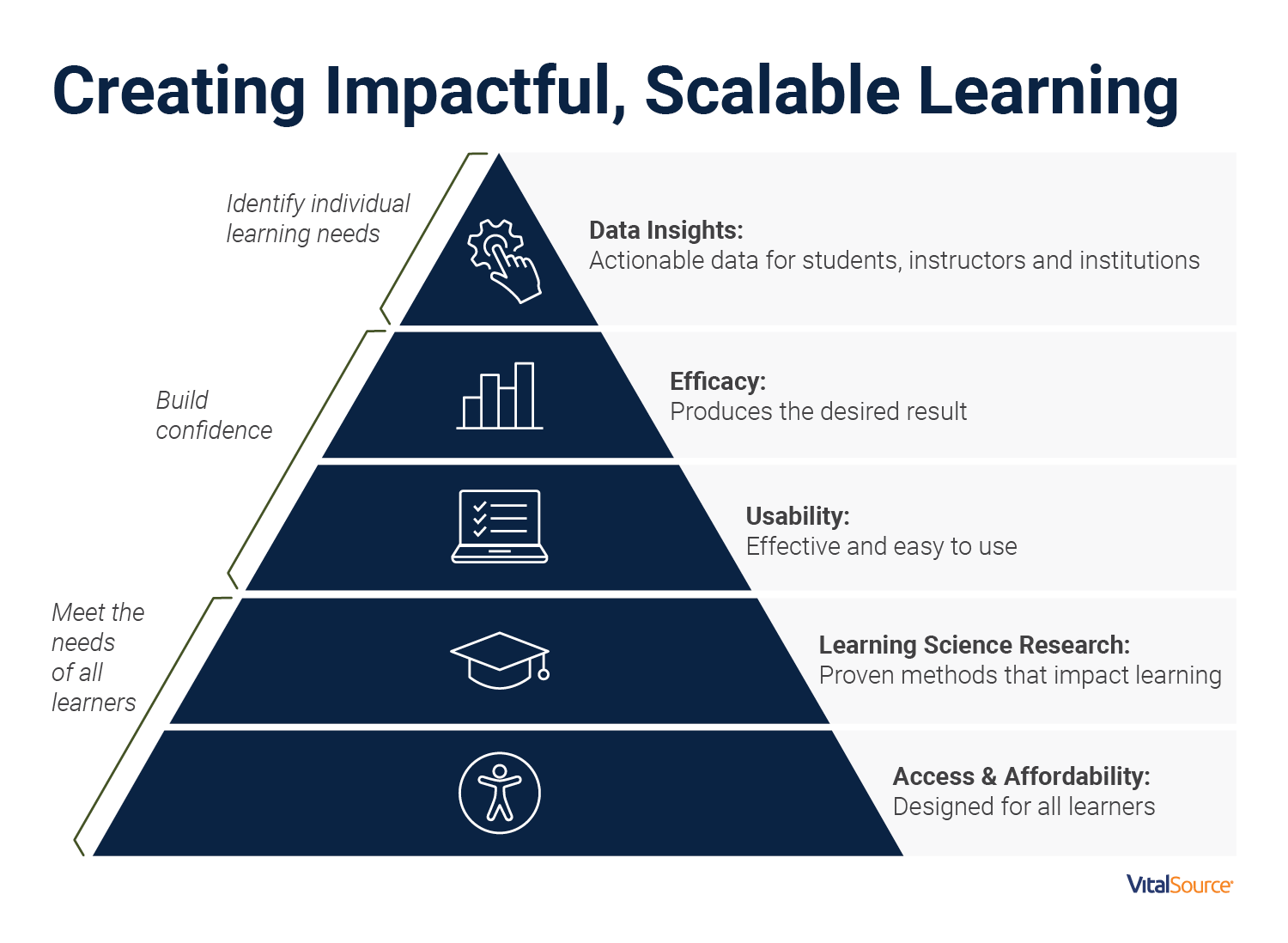Can Learning Science Make Online Learning Easier?

In today’s complex learning ecosystem, simply creating digital products intended to help support student success is not nearly enough. That is why one company is investing in scientific research focusing on five critical areas of scale - adaptivity, automatic question generation, implementation, learning engineering, and The Doer Effect.
“At VitalSource, we believe students deserve learning resources that are not just digital, but effective and accessible. Using learning science, we can build products that improve student outcomes. When combined with our expansive reach to learners around the globe, we can have a transformational impact on learning.”

VitalSource™, a leading education technology solutions provider, is leveraging research and product innovation to bring proven learning principles, like “The Doer Effect,” to students at a global scale.
“Active learners are successful learners,” said Hogue. “Our mission is to ensure that as many students as possible have access to impactful experiences anywhere, anytime.”
VitalSource’s products and technologies, including the leading learning platform, Bookshelf, were used by 16 million learners in more than 240 countries in the last 12 months.


Sharpening the Focus
Since its inception, VitalSource has been committed to research and development to improve their technology and drive student success. From its premiere products Bookshelf and SmartStart, to its day-one-access programs, VitalSource has evolved with the learners needs.
The company’s evolution continued in 2018 with the acquisition of Acrobatiq, a product founded on research from the widely respected Carnegie Mellon University Open Learning Initiative. The courseware platform had earned a reputation for its impressive work using learning science, data, and artificial intelligence to build technology that enabled student success.
The addition of Acrobatiq, and its learning scientists, strengthened VitalSource’s work and commitment to studying the science of learning and building technology based on research. The company now has team of learning scientists tasked with augmenting research and development efforts across all products and technologies, and furthering the company’s dedication to bringing impactful learning to all students by advancing learning technology and researching effective learning methods.
Today, the foundation of VitalSource’s learning technologies is imbued with innovative cognitive and learning science research that encourages students to become active participants in their own learning process. From replicating findings that the Doer Effect [1] results in better learning, to using VitalSource courseware, to developing and studying automatic question generation, to partnering with faculty to identify impactful implementation practices, the VitalSource team is focused on a comprehensive approach to creating effective learning environments for students.
On the Horizon
VitalSource’s product and engineering team has put forth a research agenda to study learning from a holistic perspective and continually advance the learning sciences. For the past several years, they have published papers at highly reputable scholarly conferences on a range of topics to share our research findings with the larger educational community.
From their research, they have shown these core learning science findings:
- Doing practice causes better learning. [1]
- Adaptivity helps better prepare struggling learners. [2]
- Teachers are vital to the successful implementation of learning technology. [3]
- Artificial intelligence can create learning by doing at scale and engage students the same as human authored questions. [4]
“To continue to serve the learner, we will continue to expand our areas of study and incorporate new research findings into our products in an ever-improving cycle,” said Rachel Van Campenhout, learning science specialist.
Visible Results
For the first time, VitalSource has compiled all its industry leading research and made it publicly available on its website.
“Student need course materials and tools that making learning better and faster,” said Mike Hale, PhD, vice president of education for North America, VitalSource. “We want to share our research with the industry to push forward the technologies that meet those needs.”
You can read the research here.
“Our learner-centered approach puts the needs of every student first, developing new tools specifically aimed at improving the learning process for students,” said Benny Johnson, PhD, director of research and development. “Our ongoing research is part of a commitment to our partners, teachers, and students to not only base our products on learning science, but to prove their effectiveness through research and constant iterative improvement.”
Never has technology based on learning science been more readily accessible to all types of learners. VitalSource is excited about a future in which digital learning leads to greater educational impact and drives student success.

1. Van Campenhout, R. Johnson, B. G., & Olsen, J. A. (2021). The Doer Effect: Replicating Findings that Doing Causes Learning. Presented at eLmL 2021: The Thirteenth International Conference on Mobile, Hybrid, and On-line Learning. ISSN 2308-4367, pp. 1–6. Retrieved from: https://www.thinkmind.org/index.php?view=article&articleid=elml_2021_1_10_58001
2. Van Campenhout, R., Jerome, B., & Johnson, B. G. (2020). The impact of adaptive activities in Acrobatiq courseware: Investigating the efficacy of formative adaptive activities on learning estimates and summative assessment scores. In: Sottilare R., Schwarz J. (eds) Adaptive Instructional Systems. HCII 2020. LNCS, vol 12214. Springer. pp 543–554. https://doi.org/10.1007/978-3-030-50788-6_40
3. Van Campenhout, R. & Kimball, M. (2021). At the intersection of technology and teaching: The critical role of educators in implementing technology solutions. IICE 2021: The 6th IAFOR International Conference on Education. ISSN 2189-1036, pp. 151–161. Retrieved from: https://papers.iafor.org/submission59028/Van Campenhout, R., Dittel, J. S., Jerome, B., & Johnson, B. G. (2021).
4. Transforming textbooks into learning by doing environments: an evaluation of textbook-based automatic question generation. In: Third Workshop on Intelligent Textbooks at the 22nd International Conference on Artificial Intelligence in Education. CEUR Workshop Proceedings, ISSN 1613-0073, pp. 1–12. Retrieved from: http://ceur-ws.org/Vol-2895/paper06.pdf
This content was paid for and created by VitalSource. The editorial staff of The Chronicle had no role in its preparation. Find out more about paid content.



